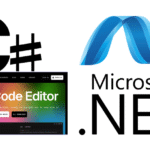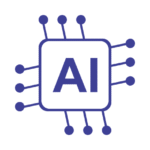Dot Net vs. Other Frameworks: Which one reigns supreme? Compare the features and benefits to find out.

In the vast and ever-evolving world of software development, there is an ongoing debate about the most efficient framework. Among the contenders, Dot Net stands out as a distinctive option. A powerful and versatile framework, it has gained popularity for its ease of use, security, and cross-platform compatibility.
However, the question remains: is Dot Net superior to other frameworks? While some developers swear by it, others remain skeptical.
Every tool has pros and cons, and it all comes down to your project needs. Whether you are a seasoned developer or a newcomer to the field, it’s essential to understand the nuances of each framework and make an informed decision.
With that in mind, let’s explore the strengths and weaknesses of Dot Net and compare it to other popular frameworks.
The Debate: Why Compare Dot Net vs Other Frameworks?
There are several frameworks available in the world of software development. Frameworks have strengths and weaknesses, and choosing one can be tricky. One of the most popular frameworks is Dot Net, which has gained popularity for its ease of use, security, and cross-platform compatibility.
However, some developers remain skeptical about its superiority over other frameworks. In this blog post, we will explore the pros and cons of Dot Net compared to other popular frameworks so that you can make an informed decision for your next project.
Flexibility and Versatility: Dot Net’s Strengths
One of the strengths of Dot Net is its flexibility and versatility. Dot Net can be used for desktop, web, and mobile applications. It also supports multiple programming languages, including C#, F#, and Visual Basic.
The versatility of Dot Net makes it an attractive option for developers who want to create applications across multiple platforms or switch between different programming languages.
Another strength of Dot Net is its ability to integrate with other technologies. Dot Net supports open standards, which can easily integrate with other technologies like web services, databases, and other programming languages.
This capability allows developers to create complex applications seamlessly interacting with other systems.
Performance: How Does Dot Net Compare?
Performance is a critical factor when choosing a framework. Dot Net is known for its fast performance, thanks to its just-in-time (JIT) compilation and garbage collection features. JIT compilation compiles code at runtime, meaning it can optimize the code for the specific hardware it is running on.
Garbage collection automatically manages memory, which reduces the risk of memory leaks and improves performance.
However, other frameworks, such as Node.js, have gained popularity for their excellent performance. Node.js is known for its event-driven architecture, which allows it to handle many requests simultaneously.
In contrast, Dot Net is a more traditional framework that relies on threads to handle requests. While Dot Net’s performance is still impressive, there may be better options for applications that require extreme scalability.
Security: Dot Net’s Built-in Features
Security is a critical concern for any application. Dot Net has several built-in security features, such as code access security, which allows developers to control what code can and cannot do. Dot Net also includes encryption libraries, which can be used to secure data transmission and storage.
Additionally, Dot Net supports secure coding practices, such as input validation and exception handling.
Other frameworks like Ruby on Rails have been criticized for their security vulnerabilities. Ruby on Rails has had several high-profile security incidents, which have caused some developers to question its security.
While Dot Net is not immune to security vulnerabilities, its built-in security features make it a safer option for applications that require high levels of security.
Maintenance and Support: Dot Net’s Advantage
Maintenance and support are essential factors to consider when choosing a framework. Dot Net has an advantage in this area because it is a Microsoft product. Microsoft provides extensive documentation and support for Dot Net, including regular updates and bug fixes.
Additionally, Microsoft has a large community of developers who contribute to the development of Dot Net and provide support for other developers.
In contrast, some other frameworks, such as Ruby on Rails, have smaller communities and may receive a different level of support. This lack of support can make maintaining and updating applications challenging over time.
Cross-Platform Compatibility: Dot Net’s Edge
Cross-platform compatibility is another critical factor to consider when choosing a framework. Dot Net has an edge in this area because it can run on multiple platforms, including Windows, Linux, and macOS.
This compatibility makes it easier to create applications that run on different operating systems, which can be a significant advantage for developers who must create cross-platform applications.
Other frameworks, such as Swift, are more limited in cross-platform compatibility. Swift is primarily designed for macOS and iOS, which makes it less suitable for developers who need to create applications on different platforms.
Cost and Licensing: Is Dot Net Worth the Investment?
Cost and licensing are essential factors to consider when choosing a framework. Dot Net is a commercial product, which means that it requires a license to use. However, the cost of a Dot Net license is relatively low compared to other commercial frameworks, such as Oracle or IBM.
Additionally, Dot Net’s licensing model is flexible, which allows developers to choose the licensing option that best suits their needs.
Other frameworks, such as Ruby on Rails, are free and open-source, which makes them attractive to developers who want to avoid licensing costs. However, free frameworks may require more development time and resources, which can offset the cost savings.
Pro Tips for Choosing Between Dot Net and Other Frameworks

Choosing between frameworks can be a daunting task. Here are three pro tips to help you make an informed decision between Dot Net and other popular frameworks:
Consider the needs of your project
The needs of your project should be the primary consideration when choosing a framework. If you need to create applications that run on different operating systems, Dot Net’s cross-platform compatibility may make it the best option.
If you need to create highly scalable applications, Node.js may be a better choice. By carefully considering the needs of your project, you can make an informed decision about which framework to use.
Take advantage of the community
The development community can be an invaluable resource when choosing a framework. Dot Net’s large and active community of developers contribute to its development and supports other developers.
By taking advantage of the community, you can learn from the experiences of other developers and get help when you encounter problems.
Pay attention to the importance of maintenance and support
Maintenance and support are essential factors to consider when choosing a framework. Dot Net has an advantage in this area because it is a commercial product backed by Microsoft.
Microsoft provides extensive documentation, regular updates, and bug fixes for Dot Net, making it easier to maintain and update applications over time. When choosing a framework, pay attention to the importance of maintenance and support, as they can significantly impact your project’s long-term success.
Frequently Asked Questions About Dot Net vs Other Frameworks
Here are three common questions about choosing between Dot Net and other frameworks:
Is Dot Net only suitable for Windows applications?
Dot Net can create applications on multiple platforms, including Windows, Linux, and macOS. Dot Net’s cross-platform compatibility makes it an attractive option for developers developing applications that run on different operating systems.
How does Dot Net’s performance compare to other frameworks?
Dot Net is known for its fast performance, thanks to its JIT compilation and garbage collection features. However, other frameworks, such as Node.js, have gained popularity for their excellent performance.
When choosing a framework, it’s essential to consider the specific needs of your project and how the framework’s performance will impact its scalability and efficiency.
How much does Dot Net cost?
Dot Net is a commercial product, which means that it requires a license to use. The cost of a Dot Net license varies depending on the specific licensing option and the number of users.
However, Dot Net’s licensing model is flexible, which allows developers to choose the licensing option that best suits their needs. Dot Net’s low licensing costs make it an affordable option compared to other commercial frameworks.
Final Thoughts about Dot Net vs Other Frameworks
Dot Net is a powerful and versatile framework that has gained popularity for its ease of use, security, and cross-platform compatibility. However, other frameworks may be better options for some projects.
By considering the pros and cons of Dot Net compared to other frameworks, you can make an informed decision about which framework to use for your next project.

Gordon is a distinguished technical author with a wealth of experience in software development, specializing in .NET C#. With a career spanning two decades, he has made significant contributions as a programmer and scrum master at prestigious organizations like Accenture and Boston Consulting Group, where he has played a pivotal role in delivering successful projects.
Since the release of .NET C# in 2001, Gordon’s passion for this powerful programming language has been unwavering. Over the past 20 years, he has honed his expertise in .NET C# development, exploring its vast capabilities and leveraging its robust features to create cutting-edge software solutions. Gordon’s proficiency extends to various domains, including web applications, desktop software, and enterprise systems.
As a technical author, Gordon remains committed to staying at the forefront of technological advancements, continuously expanding his skills, and inspiring fellow technologists. His deep understanding of .NET C# development, coupled with his experience as a programmer and scrum master, positions him as a trusted resource for those seeking guidance and expertise. With each publication, Gordon strives to empower readers, fuel innovation, and propel the field of scientific computer science forward.







